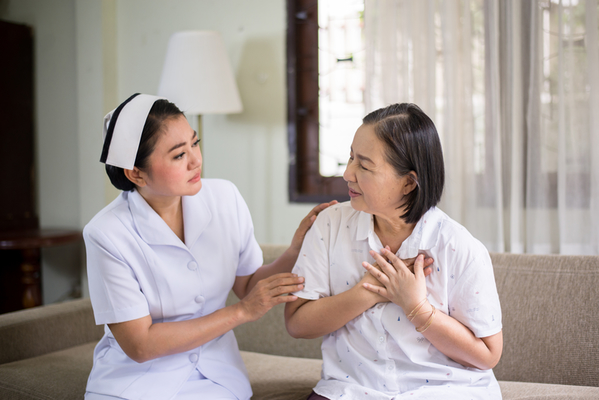
The Acute Care Nurse Practitioner (ACNP) is a registered nurse who has passed the NCLEX examination and has finished a licensed graduate-level specialized instruction program. The ACNP offers concentrated services to patients in various health care settings. They operate in specialty settings and divisions like oncology, hematology, neurology, or other regions where health care providers, for example, ACNP, care for individuals with chronic diseases in addition to severe or severe injuries.
An article printed in Science Immediate explains the evolving role of the healthcare nurse practitioner, that is progressively' getting members of critical maintenance groups. Contributing factors into the growing part of the ACNP comprises the rising requirement for intensive care therapy solutions, and proof that demonstrates that acute care nurse practitioners can supply high-quality care when functioning as a collaborative member of a critical care therapy staff.
The American Association of Critical-Care Nurses (AACCN) further clarifies that the ACNP clinics in configurations like urgent care, healthcare, hospice, or even long-term health care.
A nurse practitioner has several common responsibilities, along with a few responsibilities which are possibly unique to the particular practice setting of an ACNP.
- Ordering diagnostic evaluations
Interpreting diagnostic and lab test results
Making patient evaluations and diagnoses
Prescribing drugs
Initiating and handling individual treatment and maintenance
Patient and family education
Some places concerning the scope of practice of this healthcare nurse practitioner rely upon the particular condition and hospital regulations. The Journal of Critical Care printed a questionnaire where investigators analyzed whether acute care nurse practitioners had been credentialed to do invasive procedures. An estimated 43 percent of ACNPs perform invasive procedures in centers in which they have privileges and credentialing to execute these processes. Other responsibilities of this ACNP potentially vary by country and regulations.
Acute care nurse professionals have the experience to do complex nursing care for individuals Which Are critically and acutely sick, and have specialized skills and skills, for example:
Performing hands-on processes like intubation, chest tube insertion, resuscitation, and lumbar puncture
Collaborating with doctors to perform individual management tasks
Engaging in research with evidence-based practices
Collaborating and consulting with multidisciplinary staff to better optimize patient care and results
With the skills to function as a role model to nursing employees
Has to Be self-motivated and demonstrate leadership abilities
Maintaining all Skilled and educational needs and credentials

Some skills and skills required of an acute care nurse practitioner potentially rely on the particular subspecialty selected from the ACNP.
This usually means finishing a nurse practitioner or advanced practice nursing program (with lots of online application alternatives available) to acquire a Master of Science in Nursing (MSN) or even higher.
The condition where a nurse resides, in addition to their career ambitions, might demand the need to finish a Doctor of Nursing Practice (DNP) level or a Ph.D. in a related discipline, but the MSN is normally another step after procuring the BSN.
The requirements to be a certified nurse practitioner differ by state. There's a campaign that can direct all countries to organize their licensing demands later on. As of now, many nations haven't conformed, therefore nurses must assess prerequisites for their state before beginning the journey from RN to NP.
Many nations ask RNs to use for Advanced Practice Registered Nurse certificate, otherwise called APRN. An APRN is an RN who has completed instructional programs past the BSN and is allowed to execute a broader variety of clinical responsibilities, including delivering direct services to patients without the supervision of a physician.
Nurse professionals fall under the umbrella term APRN (although APRNs are more than nurse professionals, as summarized by the APRN Consensus Model). Some nations have nurse practitioner certificates while some refer to it as APRN certificate. In any event, the credentials differ from state to state and might change at any moment.
Entire a licensed online nurse practitioner or advanced practice registered nurse instructional program. Nurses should pick a program that will satisfy all licensing requirements to the condition where they would like to practice.
Safe nationwide certification. We are going to speak more about this in an instant.
Obtain expertise in the selected specialty, if needed by the state. Nurses might want to function as an RN for some time even if it is not required because it is going to provide the hands-on experience required to function as a prosperous NP.
Collect all documentation required to demonstrate the nurse's qualifications for state certification.
Finish the program for state licensing and ship in all supporting documentation. Many nations now allow it to be effortless to use online.
After completing an internet nurse practitioner instructional program, nurses are needed to pick a place of specialization. These can associate with the NP degree program immersion, examples comprise Adult-Gerontology, Pediatrics, Psychiatric-Mental Health, and many others. This will ascertain the function they might take when entering the area because of an NP and what people of patients that they might function.
Nurses will need to procure federal accreditation by passing a national certification examination, and every specialization has its evaluation. Nurses must do so before applying for state certification since the majority of states wish to see evidence of certification before approving a permit program.
Available nationwide certification boards comprise:
You have finished your graduate degree and are prepared to become certified as a nurse practitioner on your specialty of decision -- the one thing left to do is pass the certification exam. Tests could be nerve-wracking, however, you can improve your odds of success by following these hints to prepare for exam day:
Function using a research book for your NP certification examination and take all accessible clinic tests. The more you examine your comprehension, the more assured you will feel going to the examination. It's possible to find a minimum of one review published online for the majority of NP certification assessments. Exam anxiety can impede your thinking and make it tough to concentrate on the examination. Taking deep breaths to slow your pulse and center your thoughts on the job at hand might help.
Do not stay up late at the night before the examination. If you do not understand the info by then, you are unlikely to keep it through an extreme all-nighter. It is far better to get a wholesome meal-stress as far as you can and get a fantastic night of sleep.
Be sure to understand where the examination is held beforehand. You do not need to get dropped or trace Google about in circles while your beginning time ticks by. Plan to leave early so that period will not grow to be an additional stress.
Wear comfortable clothes that seem professional. You do not need wardrobe malfunctions or distress when sitting for extended periods, but you want to feel like a well-trained professional who's prepared to ace a significant examination.
Opt for a profession as an acute care nurse practitioner also you're able to practice in among many subspecialties. The nurse which wishes to further their schooling to become an ACNP should ensure a particular faculty or program offers their chosen subspecialty as part of their program, either via optional nursing courses or through the clinical part of the program.
There Are Lots of subspecialties accessible to the acute care nurse practitioner, for example:
Some physicians pursue an instructional program based on the particular healthcare setting in which they work, or in which they desire to get the job done. 1 example is that the acute care crisis nurse practitioner for nurses who intend to follow a career working in the emergency area.
Becoming a nurse practitioner requires a great deal of thought, whatever the specialization is selected. To begin with, students must choose which level they desire to pursue. Alternatives for ACNPs comprise:
Prospective ACNPs will even have to become accredited and licensed, know their function according to their state's degree of clinic authority, plus even more. Nurses can start preparing themselves for complex acute care clinic whenever they become RNs. If you are a current nurse Considering the extreme care NP specialty, think about working in the following environments:
The BLS clarifies that while nurse practitioners perform some duties which are very similar to the ones of a registered nurse (RN), nurse practitioners perform other jobs centered on patient-centered maintenance, study, and educational and consultation services.
Some office configurations for acute care nurse practitioners comprise:
The ACNP generally earns a greater salary compared to wages of nurses with lower expertise or schooling. The BLS suggests the 2019 median cover for nurse professionals was $115,800 each year.
There are lots of factors that decide the specific salary earned through an acute care nurse practitioner. One is your source in which you seek out salary details.

Leave Comment Below
0 Comment(s)